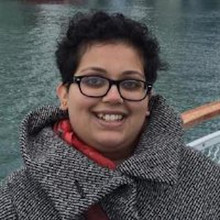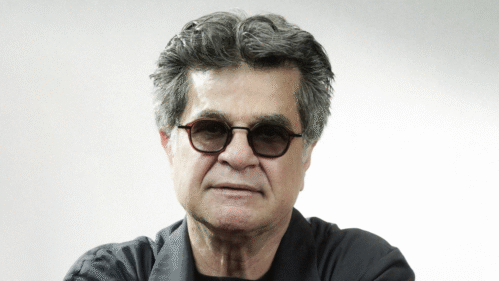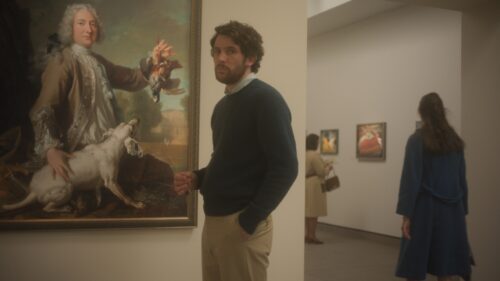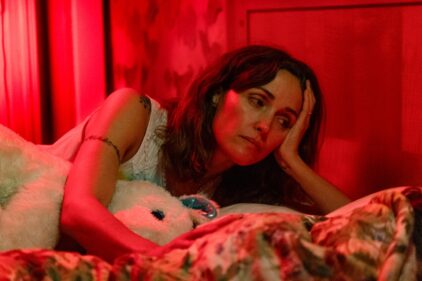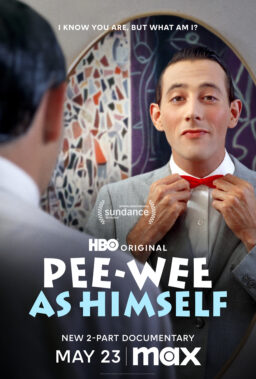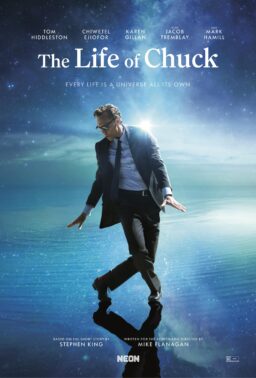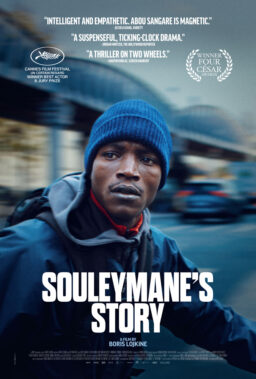A grieving widow who makes the ultimate sacrifice for her son. A courtesan with a heart of gold. A driven magazine editor whose empathy reminds a movie star of his humanity. A witty, plucky woman willing to troll her uptight brother-in-law on an industrial scale. A frightened, abused daughter who discovers the power of independence and self-possession. A woman forced to abandon her home in Uganda and immigrate with her family to the alien American South. These are but a handful of the roles that Indian actress Sharmila Tagore has inhabited in the 60-plus years she has graced the silver screen. Discovered by Satyajit Ray’s casting scouts at the age of 13, Tagore—a distant relative of Indian Nobel Laureate Rabindranath Tagore—was cast in the pivotal role of Aparna, Apu’s beloved but ill-fated wife, in “Apur Sansar,” the final film in the director’s “Apu Trilogy.” She’s been in demand ever since. Tagore’s skills and beauty were combined by directors like Hrishikesh Mukherjee and Shakti Samanta to create some of the most iconic films Hindi cinema has ever known: “Amar Prem,” “Aradhana,” “Chupke Chupke,” “An Evening in Paris,” “Kashmir Ki Kali,” and “Anupama” weren’t just smash hits or critically acclaimed. They redefined what an Indian woman could do in a film. Being demure didn’t mean being spineless; emotional devastation wasn’t a death sentence. With verve and quiet strength, Tagore altered the cinematic landscape for leading ladies. Her very appearance—the cat eye makeup, the bouffant, the gorgeous saris—continues to be mimicked and honored even today. At the age of 78, Tagore’s legacy is almost unparalleled for an actress in Indian cinema.
After a 13 year-break from acting, Tagore has returned to our screens, this time in “Gulmohar,” directed by Rahul V. Chittella (and currently streaming on Hulu). The story features Tagore as Kusum, the widowed matriarch of the Batra household who, as she prepares to sell the home in which her joint family resides, calmly announces to her loved ones that she’s bought a small home in Pondicherry and will be moving there to live alone. The decision creates ripple effects that change the course of the family’s lives. Tagore is the best part of the film, offering up a radical combination of vulnerability and quiet determination. The secrets Kusum shares, both voluntarily and involuntarily, are unlike anything Tagore—or any actress of her generation—has ever done before. And yet, Kusum fits in perfectly with her lengthy track record of playing women who refuse to give up. In a recent interview, Tagore spoke with me about how being a lifelong reader helped her become a better actress, the paramount importance of a good script, and what assuaged her apprehension about accepting the role of Kusum.
You said in an interview that you were raised in a joint family, as I was. My brother and I were raised by my grandparents, as were you and your sisters. There’s no segregation between who can scold you, who can love you, and who can teach you something. Did you think that maybe becoming an actor was a way of asserting some agency for yourself?
I wouldn’t quite put it like that. Because in a joint family, you learn to cooperate with each other, you’re not really striking out for yourself. It’s all a collaborative effort. Because there are many members in that family, and you have to be tolerant and share. These are the two things that are very important when you’re living together. My independence, or the way I think, has come from books.
Because when you’re living in a joint family, the elders were not really like today. Today’s parents are so hands-on. The children are so organized every second of their life, they’re doing something from the moment they wake up, there’s school, and there are extra classes or music or whatever. But, in our time, the parents left us alone; the elders left us alone. We could hide, read, and I think that opened many doors for me, and I could be completely unobserved, so to speak, and I think that allowed imaginations to grow, in that quietness of being alone. Although you knew you were surrounded by people, you found a corner where you could be on your own with your books or with your thoughts.
I would identify with heroines in a book, or I would identify with the situation and then think about it and go to another world, which had nothing to do with mine. I’d go to the mirror, look at my face, and make a sad face and happy face. The older people spent a lot of time with us also in the evenings together. All the meals were together with my grandfather, who always ate with a knife and fork. But my grandmother was very Bengali, wore her sari, didn’t speak a word of English, but had no problem understanding English as such, she could communicate with everybody in Bengali. We saw all this. And for aesthetics, for instance, we didn’t have to go to a museum because all the pujas [religious ceremonies and festivals] were celebrated at home. I think with Saraswati Puja and then many pujas. And there was so much—I don’t know what you’d call it, in Bengali we call it alpana.
I’m half-Bengali, I grew up with alpana as well.
Please explain to your readers what that is. [Laughs] So there were different alpanas for different pujas. All the ladies of the house did that. The first rice of the season was celebrated; meat would be cooked with that. The women would dress up; do their hair. We were participating in everything. It was a celebration of every day happenings, it was aesthetically very enriching for us. Nothing was outsourced. Everything was made at home. So when they were doing the trousseau, there was a lot of art involved. My great aunt made for my wedding present a sitar and tabla. It was so lovely. I mean, it’s not something that you can go and buy. And you know, it’s something somebody has done with their hand. And it’s so, so lovely.

You were 13 when Satyajit Ray cast you as Aparna in “Apur Sansar.” Do you think it helped your performance and your nerves that Ray was an auteur and deeply immersed in every aspect of the film?
At that age, I had no idea who he was. I had no idea how famous he was, I had no concept of cinema or sets or anything. So I just walked in, and I was dressed by Mrs. Ray, my hair was done by somebody. And I was given a script. We were told not to memorize it, just to read it, read it as many times as you want, but do not memorize any lines. Ray’s way of dealing with children—and I was also at 13 a child—was that he didn’t over-instruct. He just read out the scene once, and, of course, you have read the script already. So, that particular scene that was going to be shot on that day, he would just tell you all about it in a very relaxed fashion, not tense, not over-instruct, not saying anything beyond what is necessary. So you had no problem grasping [his instructions]: “Open the door, come in, look at the ceiling, and then say,” whatever the line, so, I was very comfortable.
And it spoke to me, in the sense that I was already reading books. I was reading books beyond my age, I was kind of romantic in the sense that I would identify with my characters in the book. So that imagination was already there. He was very good. I’ve seen him subsequently working with other child actors. If he was asked any questions by the children, he would answer. He would give them full attention and not treat them like a child at all. He sat at their level, because he was very big and tall, and he made eye contact. And he talked to them not in a very loud fashion. He took them in his confidence.
There’s a very unique confidence to your acting when you recite dialogue written by Gulzar. It somehow almost transcends the medium itself. “Mausam,” for example, is such an extraordinary film in every way, despite functioning almost like a two-person play. It’s very toned down, it’s very low-key. And yet it has somehow every theme, every message, every aspect of human society wrapped up in it.

The script is very important. You can’t really transcend the script, no matter how wonderful an actor you are. Because this is a technical medium, from the script to the editing, everything matters. When you’re on stage, you’re conversing with your audience. And one day, if you see this line hasn’t worked, the next day you do it differently. You own that space, the actors own that stage. For us film actors it’s quite different. The script and the words are very important. The written words are so lovely that all you have to do is speak them as the director tells you or as per as the script demands. And Gulzar also taught me actually how to break down a script. He taught me where the pauses should be. There’s so much humor in his language. It’s like somebody has made it all ready for you. All you have to do is just say it in front of the camera. So yes, Gulzar is very special. I used to say “Safar” is my best film, and now I say “Namkeen” is, because it’s such a good performance. Gulzar’s a writer, he’s a poet, and he structures his sentences, where the pauses are. It makes all the difference, all the difference. Without a good script, it doesn’t translate onto the screen.
I first watched “Amar Prem” when I was 9 or 10. We had just moved to America and used to rent DVDs from the local Indian store. It was an amazing film then, but I watched it again just a few days ago and I cried like a baby. It hit me in a completely different way now that I’m an adult and also have relationships. Did you discuss Pushpa and Anand’s onscreen dynamic and bond with Rajesh Khanna prior to or during filming?
We didn’t have workshops in those days. But I had already worked in a couple of films with Rajesh Khanna. “Aradhana” was my first. And I think that’s what really propelled him to the big star that he became. Obviously, we are given time to rehearse a scene. We read the script, and we prepare ourselves, but only when you put your makeup on, and you go to the set and you see the geography of the set—where the table is, where the bed is, where the window is—that’s when you when you start moving and negotiating that space, then everything comes together. The moment you’re sitting in front of the mirror and getting into the character with makeup and hair and your clothes, then you’re in character. Then when you walk into the set, and see your space, where you have to perform, then all that comes naturally. Stage actors speak to the audience. Here we speak to the camera. So if the camera doesn’t catch it, then you have missed. Kaka [Rajesh Khanna] and I had a good rapport. I did quite a few films with Kaka and they were fortunately well-liked.

Your beauty has often been used as a plot device. “Devi” is the most obvious example. In “Aradhana” and “Amar Prem,” the same lighting and makeup is used to highlight your eyes. What is it like for you to have helped define a very particular style and beauty tradition for Indian women? Women in India at the time were going to beauty parlors and saying, “I want my hair like Sharmila Tagore, I want my makeup like hers.”
If we are so focused on our effect—the effect we are having on our viewers—then we will lose our focus, if that makes sense to you. I can’t get too invested in that, “Oh, they’re following me and following my fashion” or think too much about it. There’s a tomorrow and going ahead, and I have my own self, and my own privacy. We are public figures, and we interact with the public—the public is so important to us, their likes and dislikes, etc.—but looking back on my career, I’d see so many people at the airport. But they will come in and smile. I can see there’s a lot of goodwill out there. I feel their love for me, and their liking for me. Thanks to television and OTT platforms, a lot of young people are also watching. So there is a lot of goodwill. But having said that, you also have a private world in which you’re a private person. Nobody really knows exactly who you are. So you have to also not lose touch with those aspects of your being. If you’re too invested in what everybody else is thinking and what magnificent effect you’re having on them, or you’re the style queen at the moment or whatever. You can’t be too influenced by that and shouldn’t allow yourself to be too influenced by that. Because who you are, really? You’re not that person on that screen.
Right. We just have our perception of you.
So you cannot make those two cannot merge. If it does, we will have a mental issue. [laughs]
There’s a scene in “Seemabaddha” that I especially love. Your character, Tutul, is on the opposite side of the room from Shyamal, her brother-in-law. Your sister is asleep, and you’re conversing with him. It is about as respectable as flirting can be between a brother-in-law and a sister-in-law. I am fascinated by your performance in that scene because you are clearly not afraid. You’re able to meet this man halfway, you’re open, you’re both flirting a bit. You’re a modern woman, you discuss things with him almost like an equal. Could you tell me about that scene and what it was like to play someone through whose eyes the story is told? Tutul admires her brother-in-law so very much, but by the end of the film it all comes crashing down.
Yes, because again, going back to the joint family, I’ve seen these little flirtations between brothers- and sisters-in-law. It’s permitted, in the society, to flirt a little bit. The character that I play in “Seemabaddha” was very enamored with this boy who used to come to her family’s home on his bicycle and was full of idealism. She was curious to come to the big city, to Kolkata, and meet him now that he’s successful. He goes to all these race courses, clubs. Their son is studying in Darjeeling, they live on the seventeenth floor of a luxurious apartment building. Tutul was very keen to see whether he’s changed, and whether he’s really lived up to the ideals that he practiced then. So she saw nothing wrong in the races. She was herself very excited. She went to a bar and saw the dancing going on, so she found everything quite non-controversial as such. And then suddenly, she started noticing the hypocrisy of it all. And there are bombs exploding in the city. But nobody is really noticing it. Except her. She can see that people are playing with words. They don’t really mean everything they say.

Tutul sees the dissonance in a way that everyone else has completely tuned out. They just sort of go about their very privileged lives and to her this is very jarring.
Nothing is really meant to be taken seriously. This guy [a man enamored by Tutul at a party] sits at her feet—it’s just a way of life, like banter, but it’s not to be taken seriously. And then she senses that something is happening. One moment Shyamal is so, so worried, and the next moment, he is not. When she had arrived, he’d given Tutul one of his watches. The curtains had been billowing as she arrived, just like they were when Amol arrives in “Charulata.” In the final scene, there’s a revelation, when she realizes what Shyamal must have done. He gets home from work, climbing the stairs because the lift is out. Inside the house he calls for her. And when she enters, she’s standing very still, the curtains are also very still. When she comes, she quietly takes off the watch and leaves it on the table, and then she’s erased from the scene. Because if Tutul was like a conscience, he doesn’t really need that conscience anymore.
It’s already too late.
He’s compromised. I felt the ending was very good.
“Anupama” had a profound impact on me when I first saw it as a child. You’ve said in interviews you regret disagreeing with Hrishikesh Mukherjee about your hairstyle in that film. [Mukherjee, the director, didn’t want Tagore to wear her signature bouffant in the film, but Tagore insisted.] But now that I watch the film as an adult, I actually think that decision you made gave Uma some agency because, yes, she lives in an emotionally abusive household, she’s a motherless child, her father neither seems to like her, love her, nor understand her. But that doesn’t mean that Uma can’t be fashionable, it doesn’t mean that she can’t have likes and dislikes.
This is what happens if we make a film once, and then it goes out there. Then it becomes many films, because everybody—each individual who’s watching it—is looking at it differently. That was not intended by the director. It’s similar to how “Rear Window” has changed over the years. Like, is Lisa a feminist? Or is she not a feminist? She’s reading that magazine at the end and that has been interpreted in so many different ways. One film becomes 1000 films. We no longer own the interpretation. That’s the beauty of what we do, and how it is perceived. You are a different generation from us, then you’re looking at agency and all that. But at that time, I did disagree with Hrishi-da, and I’m not quite proud of that. Because ultimately, the director is the boss figure. But anyway, I got away with it. And now that I see it, it wasn’t really bizarre as such. I think the medium being black and white also helped. It’s still a lovely film, it has beautiful music and beautiful moments. The whole tonal quality of Uma, even the way she leaves. There’s no rebellion. She just quietly states what she wants to do. She has changed as a person, and crossed the barrier, so to speak.
My favorite scene in that film is the last time Uma’s father scolds her, telling her she’s no longer allowed to leave the house without his permission. We’ve seen plenty of scenes in the film where she’s literally knocked backward from the ferocity of her father yelling at her. But this time, she doesn’t run up the stairs, she doesn’t cry. She smiles as she ascends the stairs. Could you tell me more about that scene? Because watching it, I felt something move inside my body. It was like the movie had itself changed now. We were dealing with a different woman now than the one we had met before.
I agree with you that that is exactly the effect that was intended. It’s very subtle, the fact that she has become a different person. Now she has that confidence, because often in our own lives, we are very tentative and we are not quite sure of what we want to do. And slowly as our confidence grows—and it has to be from within us; other people or their outside influences are there, but unless and until we imbibe them within ourselves, we cannot grow in our confidence. Uma knew that she had to [change]—there must have been people in her life who were telling her to [change], and in that moment, she did. She transforms and transcends that diffidence, or call it lack of confidence or fear of the unknown. So she crosses that hurdle. And with that comes an inner peace and inner independence and confidence where Uma doesn’t have to verbally argue or assert herself in any loud fashion. That was the intention of the scene, that she has become a different person now. And knows what her destination is and has found herself.

The best thing about Kusum, your character in “Gulmohar” is that there’s kind of a through-line in all the women you’ve played. It doesn’t seem like a stretch to me to imagine Uma or Vandana or Pushpa growing older, and confiding to their granddaughter that, “I was once in love with a woman, my sexuality is fluid.” Kusum is willing to take her own decisions, she’s willing to assert herself. Did Kusum seem like a perfect evolution of all these women you’ve played?
Well, I’m so grateful. I’m so grateful for this role, that it happened and that I was able to perform in it. I think the audience understood that also. So yes, actually, that was the intention. As you become more experienced, old age also has that sense of freedom. You own yourself. Whatever the society needed from you, or wanted or demanded from you, like raising kids or whatever your duties were, you performed all of that. There comes a time when Kusum says that, “The kids are older now. They’re doing their own thing. They have their family. So now I want to live for myself.”
I think quite a lot of us feel like that, because a lot of senior people have given up a lot of things for their family. They’ve always prioritized the needs of the family over their own. The kids have changed, their focus has changed. Once upon a time, they couldn’t do without their mother. Now, there are others who are closer to them than their mother. Every generation experiences that shift in focus. So when that happens, you should be able to do what you wanted to do, and not be dependent economically and socially or emotionally on your family. Of course there’s love; there is a bond, but there has to be a freedom of emotion and commitment. You choose then what you have to do, what you want to do, what is your priority.
Nobody else can decide what that freedom is. It could be just sitting at home reading a book, or it could be traveling. It could be whatever your own priority is that you have neglected for many years. There is no guilt at all in that. Earlier there’s a lot of guilt for doing something that you wanted to do, because you felt, “Oh, that time should be given to somebody else.” But now there is no need to feel guilty.
You weren’t worried about accepting the role? Because I think India has a ways to go when it comes to acceptance and protection of the LGBTQ community, but were you worried about accepting a role in which your character was saying, “Yes, I fell in love with a woman. I didn’t get to pursue it. But it happened”?
[I felt] a little bit of apprehension, but the way they have dealt with it in the script is very subtle, not in your face. And I’ve been surprised, really. The audience has really accepted it. They’re okay with it. It’s not being underlined, or underscored, or an in-your-face kind of statement. It’s kind of an internal evolution of a person. So it’s at that level. It’s been her decision all the way, whatever the need of that time was. And her growth has been sort of powered by that. If you see the film, you realize what sort of a person she is. She is connected to everybody and she still prioritizes her own self. There’s nothing wrong in that. She’s 76 now, in the film. So now she wants to be free, basically.
And she has that right.
Yes, having done everything that the society or family demanded. She’s looked after everybody. And now she’s free to move on, if she wants to. She’s not leaving. She’s not breaking ties. She’s not being overdramatic about anything. In life change is constant. And now we all have to fix the kaleidoscope a little bit, or shift the angle a little bit, to accommodate, to deal with the changes because in the film, everybody, what they were four days ago, four days later they were not. Everyone has stretched themselves to understand the other’s point of view.
“Gulmohar” is now playing on Hulu.
